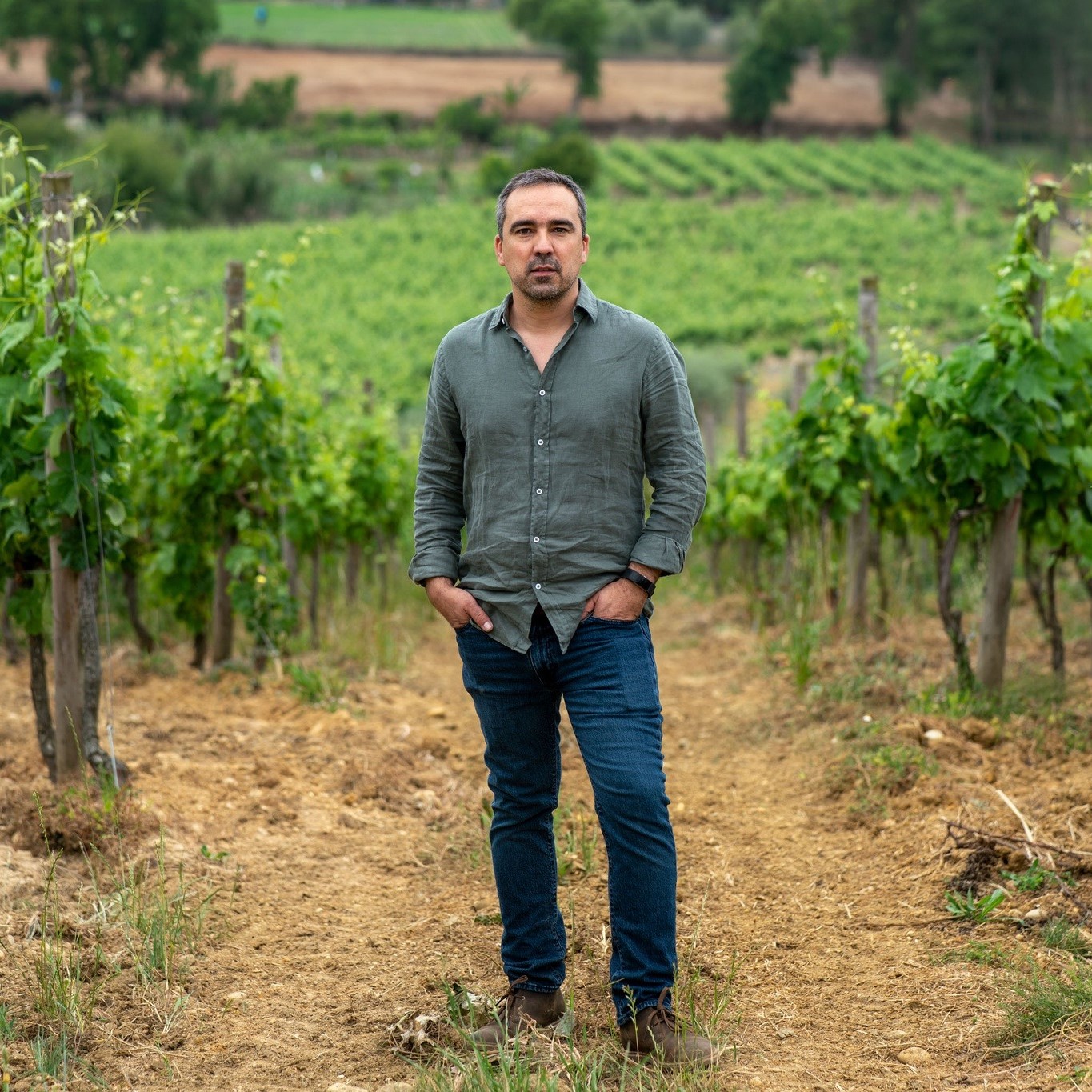
Wines from Luís Patrão
Grande Vadio TintoVadio Branco
Vadio Espumante Bruto Rosé
Vadio Perpetuum Espumante
Vadio Rexarte Tinto
Vadio Tinto
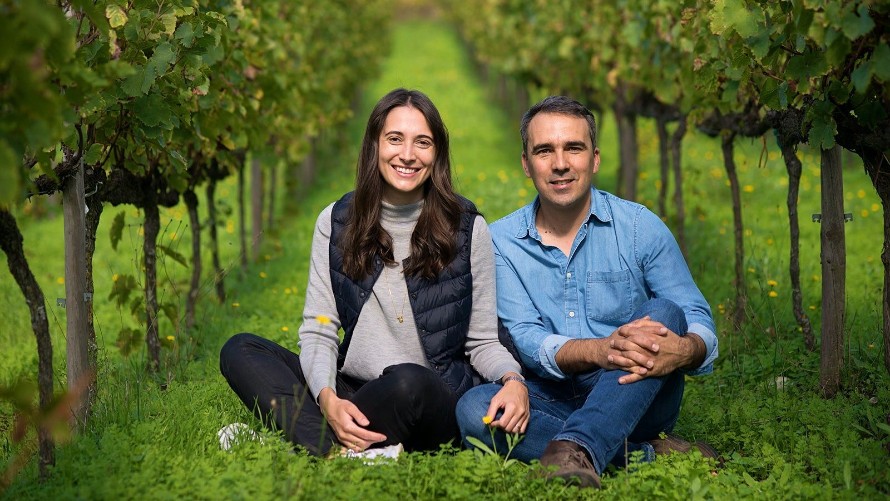
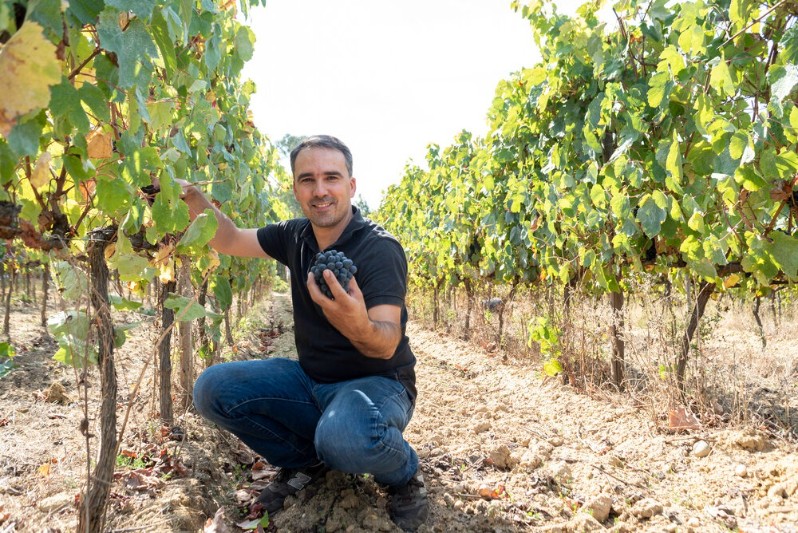
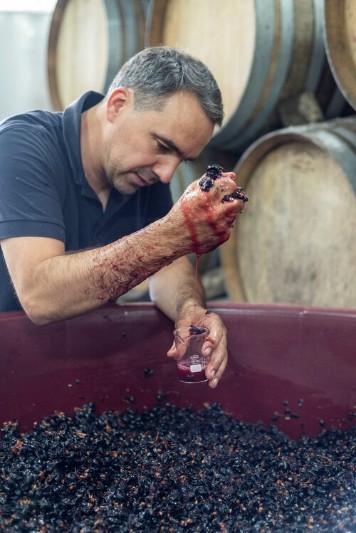
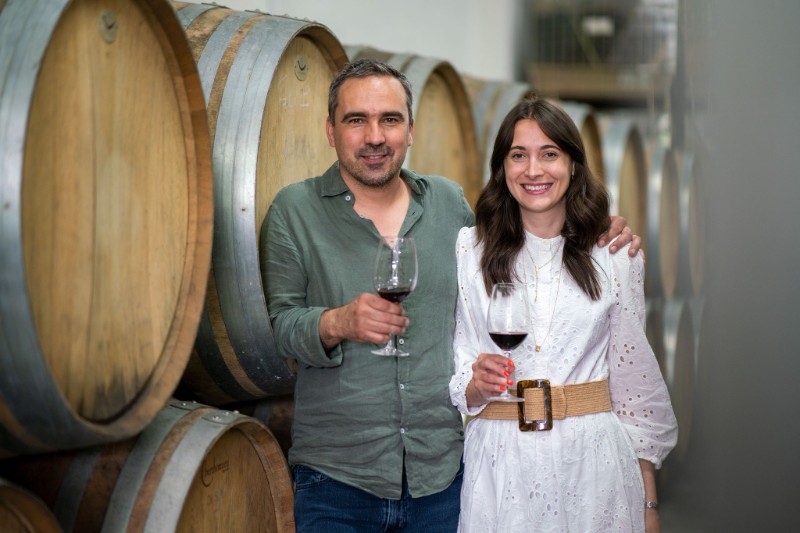
Luís Patrão
Vadio
Bairrada, Portugal
Luís Patrão has established himself as a leading winemaker in the Bairrada region for his work with the Baga grape and his production of sparkling wines. His journey in the wine world is marked by a deep passion and a commitment to authenticity, sustainability, and a blend of innovative and traditional winemaking practices.
Luís combines traditional and innovative techniques to produce exceptional wines, using indigenous grape varieties like Baga, Bical, and Cercial, fermenting with native yeasts, and aging wines in old oak barrels. This approach helps preserve the authentic character of the wines and the unique expression of the Bairrada terroir. His practices include precision viticulture, which involves detailed monitoring of vineyard conditions to optimize grape quality. Luís also employs minimal intervention winemaking, ensuring the natural qualities of the grapes are preserved. Efficient resource management further underscores his commitment to sustainable winemaking. Luís was also a pioneer in the region in using the solera technique for the production of base wines for sparkling wines, making Vadio Perpetuum sparkling a reference among sparkling wines in Portugal.
A PASSION FOR WINE
Luís's passion for winemaking began at a young age. His family owned a small vineyard, selling grapes to the local cooperative. As a teenager, Luís worked at the cooperative, marking the start of his wine career. It was during an internship in California that his passion for oenology truly solidified, making it a decisive experience for his future. He worked at Rosenblum Cellars during the 2002 harvest as a cellar intern. This unique experience allowed Luís to work alongside interns from various parts of the world, including France, New Zealand, Australia, and Chile, providing him with a global perspective on winemaking.
CAREER AND ACHIEVEMENTS
Luís gained extensive experience in the industry, interning at Cape Jaffa Wines in Australia in 2003 and participating in the 2006 harvest at Cousiño Macul in Chile. From 2003 to 2016, he served as a winemaker at Herdade do Esporão in Alentejo, a pioneering winery in sustainability. During his tenure, Esporão converted 600 hectares of vineyards to organic viticulture.
Currently, Luís is the head winemaker at Tapada de Coelheiros in Alentejo, continuing the legacy of this winery and producing exceptional wines like Tapada de Coelheiros Garrafeira and Tapada de Coelheiros Vinha do Alto.
VADIO
In 2005, Luís founded Vadio, a small family project in Poutena, Bairrada. With his wife Eduarda Dias managing day-to-day operations and support from his father, Dinis Patrão, Luís has dedicated himself to recovering traditional grape varieties and producing authentic DOC Bairrada wines. The project started with half a hectare of vineyard and has grown to 10 hectares, becoming self-sufficient in terms of grapes.
IN THE VINEYARD
The cornerstone of Vadio’s philosophy is the focus on indigenous grape varieties. Luís prioritizes Baga for reds and Bical and Cercial for whites, highlighting their ability to capture the unique terroir of Bairrada. This region, influenced by the Atlantic, features clay-limestone soils and a moderate climate, is the ideal place for cultivating the Baga grape. Bairrada’s terroir imparts distinctive freshness, elegance, and structure to the wines, offering remarkable aging potential.
IN THE CELLAR
Luís employs minimalist winemaking techniques to preserve the wine’s natural qualities. This includes gentle handling of the grapes, minimal intervention during fermentation, and the use of indigenous yeasts. These practices ensure that the wines are authentic and reflective of their origin.
Another distinctive feature of Vadio’s wines is the emphasis on prolonged aging. Luís believes that extended maturation in the cellar, particularly in used oak barrels, contributes to the complexity and depth of the wines. The careful use of wood, primarily old barrels, allows the wines to develop structure and elegance without overpowering the fruit's natural flavors.
SUSTAINABILITY
Luís advocates for regenerative agriculture, focusing on sustainability and vineyard ecosystem health. Vadio practices organic certified viticulture to enhance biodiversity and soil health, using indigenous yeast for fermentation to preserve the unique terroir.
At Vadio, soil health is maintained through organic farming methods, cover crops, and composting, while water and energy are managed efficiently to minimize waste.
Since 2015, Vadio has significantly reduced its carbon footprint by decreasing bottle weight and using eco-friendly packaging. The vineyards emphasize biodiversity, preserving natural habitats to support local flora and fauna.
Vadio employs fair labor practices and promotes local labor, fostering economic and social development in the region. They exclusively use traditional grape varieties like Baga, Bical, and Cercial, which are well-adapted to local conditions and resistant to fungal diseases.
To address water scarcity, Vadio uses drought-resistant rootstocks and promotes root system development without irrigation. Sustainable winemaking at Vadio also addresses climate action by adapting vineyard practices to the changing climate, employing precision viticulture techniques to dynamically monitor and respond to vineyard conditions.
THE FUTURE
The Vadio project has matured and remains true to its initial vision of being a small, family-oriented winery focused on quality and sustainability. Luís aims to continually enhance the vineyard’s resilience to climate change, ensuring the long-term sustainability of the project and the exceptional quality of their wines.
Luís Patrão is an example of dedication and passion for wine, combining tradition and innovation to create wines that are a true expression of their terroir, sustainability, and winemaking heritage.
Let’s stay in touch
“We’ll keep you in the loop about future events, winemaker tastings, recipes, new releases, travel guides and other occasional updates.”
